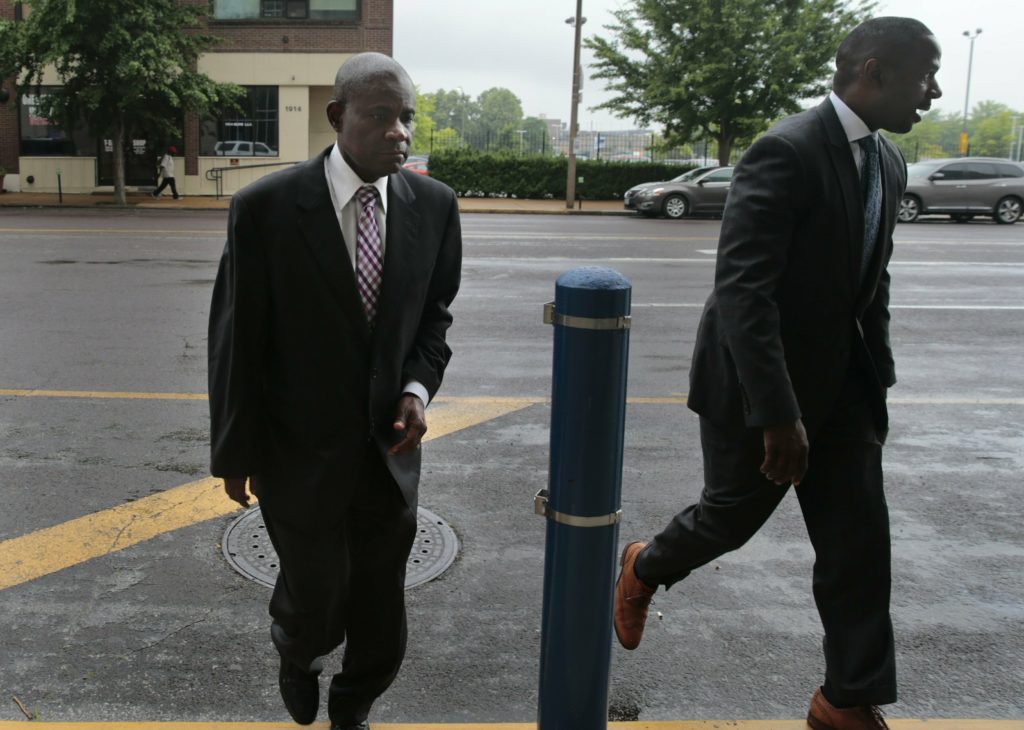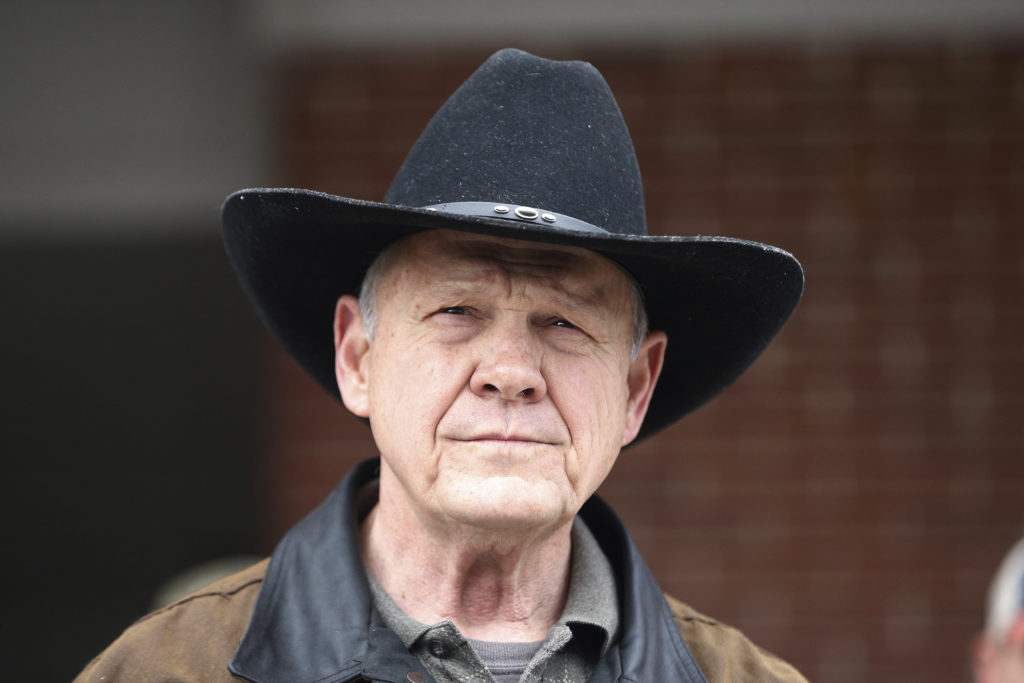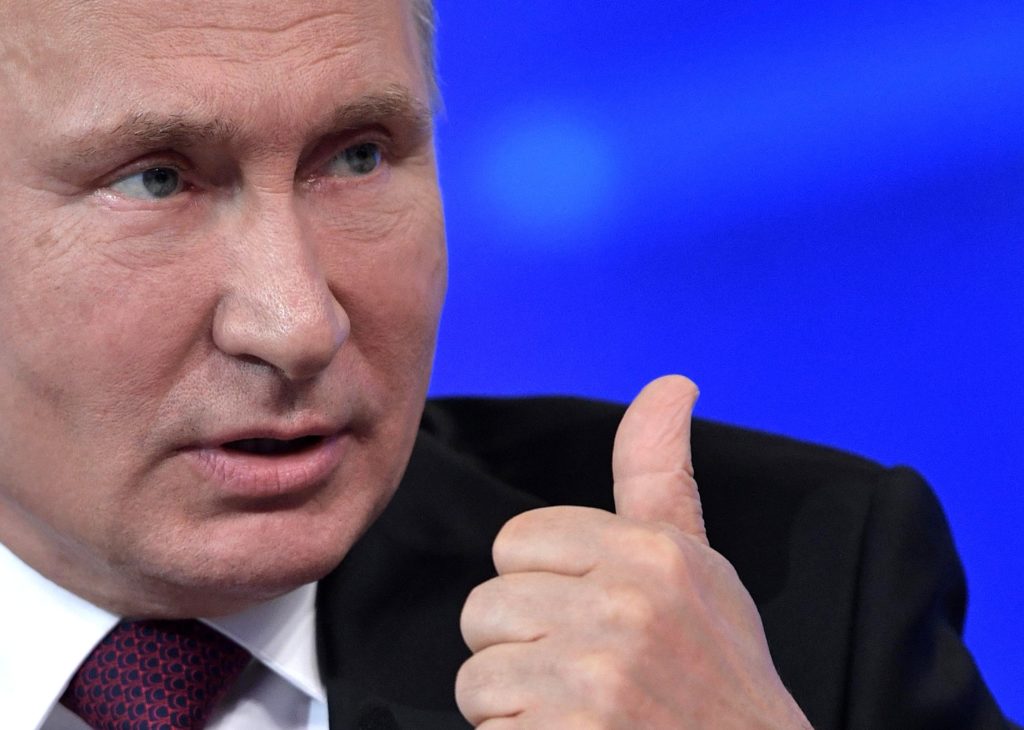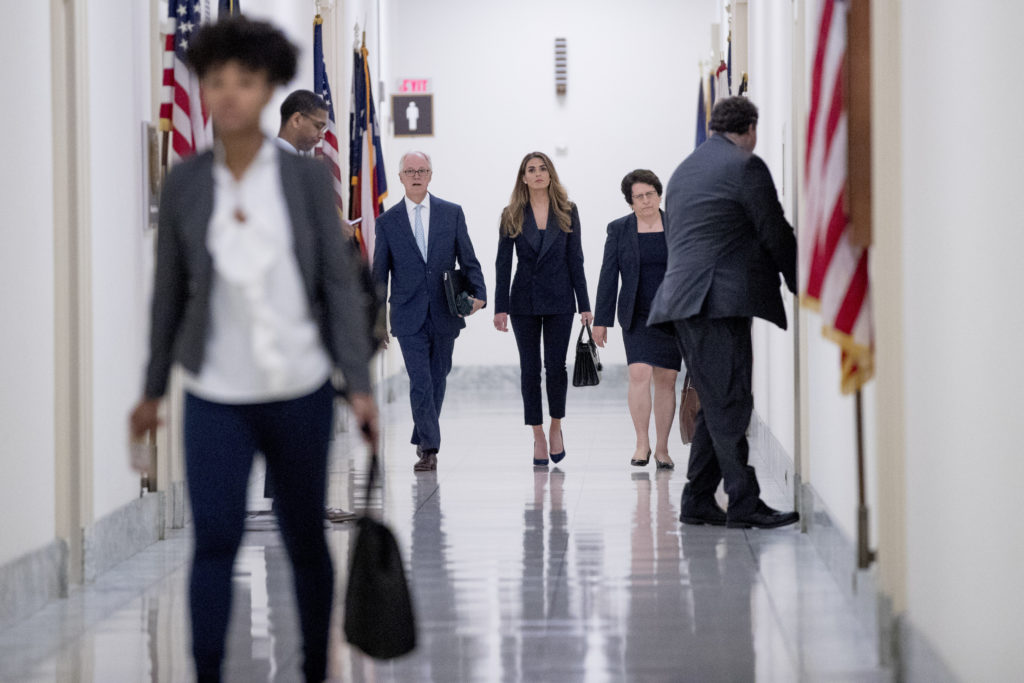Alabama FBI investigator indicted on 7 felonies in Missouri Gov. case

A former FBI agent accused of botching the criminal investigation of former Missouri Gov. Eric Greitens turned himself in Monday after being indicted on charges alleging that he lied in a deposition about his interview with a woman who had an affair with Greitens. William Tisaby surrendered to authorities on the same day that an indictment charging him with six counts of perjury and one count of tampering with physical evidence against him was unsealed. Tisaby, who lives in Trussville, Alabama, was hired last year by St. Louis Circuit Attorney Kim Gardner to investigate allegations that Greitens took a compromising photo of his hairdresser and threatened to share it if she exposed their affair in 2015, a year before the Republican was elected governor. Charges were eventually dropped, but Greitens resigned last June.Gardner’s handling of the Greitens case drew strong criticism from his attorneys, who asked police to investigate whether Tisaby lied under oath as part of a deposition of the hairdresser.Gardner ultimately decided to dismiss the case after the judge granted a request by Greitens’ lawyers to call her to testify about Tisaby. Gardner said at the time that it put her in the “impossible” position of being a witness in a case she was prosecuting.The indictment, which was filed under seal Friday in St. Louis Circuit Court, alleges that Tisaby lied under oath “about matters which could substantially affect, or did substantially affect, the course or outcome of the Greitens case.”The indictment alleged that Tisaby denied taking notes during his interview of the hairdresser, although a recording of the interview that he initially said was unwatchable because of an equipment malfunction showed him doing so. The indictment also said that Tisaby said he didn’t receive notes from the prosecutor’s office before he interviewed the woman, although a document uncovered during the grand jury proceedings shows that Gardner had provided Tisaby her notes.The indictment also was critical of Gardner, saying she failed to correct false statements. It also noted that relying on an outside investigator rather than police was “contrary to normal protocol.”Scott Rosenblum, one of Greitens’ former lawyers, described the prosecution as “misguided” and said the allegations described in the indictment are “even more egregious than we thought.”Tisaby, who pleaded not guilty at his arraignment Monday, was released on his own recognizance under the conditions that he surrenders his passport and informs a probation officer of any travel plans. His attorney, Jermaine Wooten, didn’t immediately return a phone message from The Associated Press seeking comment. He said previously that Tisaby is “very upset he’s being used as a scapegoat” and described him as “an honest and decent man.”A spokesman for Gerard Carmody, the special prosecutor assigned to oversee the investigation, and a spokeswoman for Gardner said they are unable to comment because of a gag order in the case.
Roy Moore announces he’ll run for US Senate again in 2020

Alabama Republican Roy Moore announced Thursday that he is running for U.S. Senate again in 2020 after failing to win the seat two years ago amid sexual misconduct accusations. With his return to the political stage, Moore faces a crowded GOP primary field as he aims for an eventual rematch against Democratic Sen. Doug Jones, who bested him in the 2017 special election to fill the seat previously held by Jeff Sessions. “I believe in America. I believe we’ve got to have politicians that go to Washington and do what they say,” Moore said during his announcement.Some state and national Republicans, worried that Moore’s too polarizing and could jeopardize what should otherwise be a reliable GOP seat, have discouraged him from entering the race. Republicans see retaking the Alabama seat as a top priority in 2020.”He can do what he wants to, but we’re certainly going to oppose him in every way,” Senate Majority Leader Mitch McConnell, a Republican from Kentucky, said in a brief interview with The Associated Press before Moore’s announcement. President Donald Trump tweeted last month that Moore “cannot win” and said Republicans need to retake the seat in the once reliably red state.“Republicans cannot allow themselves to again lose the Senate seat in the Great State of Alabama,” Trump wrote in a tweet. “I have NOTHING against Roy Moore,” Trump wrote, but warned that “Roy Moore cannot win.” Moore brushed aside that criticism Thursday: “Can I win? Yes I can win.”He says establishment Republicans don’t want him in the Senate. During the 2017 race, six women accused Moore of pursuing romantic or sexual relationships with them when they were teenagers as young as 14 and he was an assistant district attorney in his 30s. Two accused him of assault or molestation. Moore denied the accusations and has said he considered his 2017 defeat, when he lost to Jones by 22,000 votes out of 1.3 million cast, “a fraud.”A crowded GOP primary field is competing to challenge Jones. U.S. Rep. Bradley Byrne, former Auburn University football coach Tommy Tuberville and legislator Arnold Mooney have already announced bids. kMoore retains a strong following among some evangelical voters in the state. He was twice elected as the state’s chief justice but was twice stripped of those duties after a judicial ethics panel said he defied, or urged defiance of, federal court orders regarding same-sex marriage and the public display of the Ten Commandments.
Vladimir Putin open for talks with Donald Trump, warns against force on Iran

Russian President Vladimir Putin said Thursday that he’s open for a meeting with United States President Donald Trump but doesn’t expect quick progress on easing tensions with Washington. The Russian leader also strongly warned the United States against using force on Iran, saying it will trigger a “catastrophe.” Trump said he would meet with Putin on the sidelines of next week’s G-20 summit in Osaka, Japan, but the Kremlin noted that the White House hasn’t formally requested the meeting yet. Speaking during a live marathon call-in show that lasted more than four hours, Putin said he’s ready to hold more talks with Trump. “Dialogue is always good and necessary,” Putin said. “If the American side shows interest in that, we are naturally ready for a dialogue as much as our partners are.” He added that Russia and the U.S. particularly need to focus on arms control issues, including the future of the New Start arms treaty that is set to expire in 2021. Putin charged that U.S.-Russian relations have become hostage to the U.S. domestic political infighting ahead of the 2020 U.S. presidential election, clouding prospects for their improvement. “Our relations aren’t going to be easy, given the fact that part of the American establishment is speculating on Russia-U.S. relations, trying to muddy the waters to make some gains and inventing all kinds of fake (news),” he said. The Russian leader has denied meddling in the 2016 U.S. election to help Trump win despite the evidence to the contrary uncovered by U.S. special counsel Robert Mueller. Putin added that Trump’s re-election bid will make easing tensions even more unlikely. “Even if the president wants to take some steps forward, to discuss something, there are plenty of restrictions coming from other state structures,” Putin said. Putin was questioned on a report by The New York Times about U.S. cyberattacks on Russian energy infrastructure, which Trump has denounced as an “act of treason” in an angry tweet this week. Putin said Russia takes the matter seriously. “I heard about The New York Times article and saw the reaction of the president, who called them traitors,” Putin said. “I don’t know how we should interpret it, whether they uncovered true information or it was a fake. In any case, we need to react to that (but) we must understand what was it.” “It’s important to protect our vital infrastructure,” Putin added.Russian news anchors claimed the call center repeatedly came under cyberattacks during the show but they were successfully fended off.During the show, Putin warned the U.S. that an attack on Iran would have enormous consequences, adding it would trigger an escalation of hostilities across the region. “It would be a catastrophe for the region as a minimum,” he said,Tensions have been mounting recently over last week’s attacks on tankers near the Strait of Hormuz, assaults that Washington has blamed on Iran. Iran has denied the accusations. Putin noted that Iran has abided by the terms of a landmark nuclear deal despite the U.S. withdrawal from the accord, adding that he considers U.S. sanctions against Iran unfounded. Asked if Russia could be willing to negotiate a “grand bargain” with the U.S. on Syria and other issues, Putin responded by saying that “we aren’t trading in our allies, our interests and our principles.” He added, however, that it’s necessary to discuss regional issues with various players, including the United States. Answering a question about Ukraine, Putin criticized the country’s new president, Volodymyr Zelenskiy, for recent comments in which he refused to negotiate directly with the Moscow-backed separatists who have overrun large swathes of eastern Ukraine. A 2015 peace deal called for direct negotiations between the Ukrainian government in Kiev and the separatists with the mediation of Russia, France and Germany. Putin said the “political will of the Ukrainian leadership” is necessary to stop the hostilities between Ukrainian troops and Russia-backed insurgents that have killed more than 13,000 people since 2014. Putin pointed out that Zelenskiy’s campaign promises to bring peace to the east and stop the fighting haven’t yet been fulfilled. The tightly-choreographed call-in provided a rare opportunity for Russians across the vast country to take their grievances to the very top, so it was dominated by complaints about low wages, potholed roads, decrepit schools, overwhelmed hospitals and other social issues. More than 1.5 million people sent in questions by phone, video or email.Facing a litany of complaints about low living standards, Putin promised to boost wages and pensions and boost social programs. He noted that Russia has been hurt by a drop in energy prices worldwide and by international sanctions, but added that the economy has improved. Putin acknowledged that U.S. and the European Union sanctions have cost Russia an estimated $50 billion since 2014, but he claimed that EU nations have suffered even greater damage because of the restrictions. It was not immediately possible to verify such a claim. The Russian leader said the sanctions have encouraged Moscow to launch its own production of ship engines and other key industrial products and develop its agricultural sector. He said Russia’s agricultural exports topped $25 billion last year and will keep growing. Putin charged that the Western sanctions represent an attempt to curb Russia’s growing power, adding that U.S. trade restrictions against China serve a similar purpose. He noted U.S. sanctions against the Chinese telecommunications giant Huawei, describing it as part of U.S. efforts to “contain the development of China as a global power.” “The same thing is happening with regard to Russia and it will keep going. So if we want to win a place under the sun, we simply need to get stronger, primarily in the economic sphere,” he said. Nataliya Vasilyeva contributed to this report. By Vladimir Isachenkov Associated Press. Republished with the permission of the Associated Press.
Hope Hicks rebuffs questions on Donald Trump White House in interview

Former top White House adviser Hope Hicks refused to answer questions related to her time in the White House in a daylong interview with the House Judiciary Committee, dimming Democrats’ chances of obtaining new or substantive information about President Donald Trump in their first interview with a person linked to his inner circle. Frustrated Democrats leaving the meeting Wednesday said Hicks and her lawyer rigidly followed White House orders to stay quiet about her time there and said they would be forced to go to court to obtain answers. House Judiciary Committee Chairman Jerrold Nadler, Democrat-New York, said Hicks’ lawyers asserted the White House’s principle that as one of Trump’s close advisers she is “absolutely immune” from talking about her time there because of separation of powers between the legislative and executive branches. Nadler said that principle is “ridiculous” and Democrats intend to “destroy” it in court. Nadler said the committee plans to take the administration to court on the immunity issue, and Hicks’ interview would be part of that litigation. In a letter Tuesday to Nadler, White House counsel Pat Cipollone wrote that Trump had directed Hicks not to answer questions “relating to the time of her service as a senior adviser to the president.” The White House has similarly cited broad executive privilege with respect to many of the Democrats’ other investigative demands, using the president’s power to withhold information to protect the confidentiality of the Oval Office decision-making process. Hicks did answer some questions about her time on Trump’s campaign, the lawmakers said, but they said they learned little that was new. “She’s objecting to stuff that’s already in the public record,” California Rep. Karen Bass said on a break from the interview. Rep. Pramila Jayapal, Democrat-Washington, called her answers “a farce.” California Rep. Ted Lieu tweeted about the meeting while it was ongoing, writing that Hicks refused to answer even innocuous questions such as whether she had previously testified before Congress and where her office was located in the White House. In all, she was behind closed doors for eight hours, with an hourlong break for lunch. Democrats pressed Hicks on episodes she might have witnessed as one of Trump’s closest advisers. During questioning about the campaign, Rep. Madeleine Dean, Democrat-Pennsylvania, said she asked Hicks if she had been aware of any outreach from the Russians. After Hicks responded no, Dean named apparent contacts, such as emails, some of which are mentioned in special counsel Robert Mueller’s report. Hicks said she hadn’t thought those contacts were “relevant,” according to Dean. Republicans had a different perspective, saying she was cooperative and the interview was a waste of time, especially in light of Mueller’s two-year investigation. The top Republican on the panel, Georgia Rep. Doug Collins, said after the interview that the committee “took eight hours to find out what really most of us knew at the beginning.” Hicks was a key witness for Mueller, delivering important information to the special counsel’s office about multiple episodes involving the president. Mueller wrote in his report released in April that there was not enough evidence to establish a criminal conspiracy between Trump’s 2016 campaign and Russia, but said he could not exonerate Trump on obstruction of justice. The report examined several situations in which Trump attempted to influence or curtail Mueller’s investigation. Democrats has planned to ask Hicks about several of those episodes, including efforts to remove Mueller from the investigation, pressure on former Attorney General Jeff Sessions and the firing of FBI Director James Comey. They also planned to ask about Hicks’ knowledge of hush-money payments orchestrated by former Trump lawyer Michael Cohen to two women who claimed to have had affairs with Trump — the porn actress Stormy Daniels and model Karen McDougal. Trump has denied the allegations. Cohen is now serving three years in prison partly for campaign violations related to the payments. One lawmaker who was in the room said Hicks would not answer many of those questions. The person requested anonymity to discuss the closed-door interview. As Hicks spoke to the committee, Trump tweeted throughout the day. He said the interview was “extreme Presidential Harassment,” and wrote that Democrats “are very unhappy with the Mueller Report, so after almost 3 years, they want a Redo, or Do Over.” He also tweeted that it was “so sad that the Democrats are putting wonderful Hope Hicks through hell.” Trump has broadly stonewalled House Democrats’ investigations and said he will fight “all of the subpoenas.” House Speaker Nancy Pelosi is taking a methodical approach to investigating Trump. More than 60 lawmakers in her caucus — including around a dozen on the Judiciary Committee — have called for opening an impeachment inquiry, but she has said she wants committees to investigate first and come to a decision on impeachment later. While Trump has continued to block their requests, Democrats have recently made some minor gains, such as the Justice Department’s agreement to make some underlying evidence from Mueller’s report available to committee members. The Judiciary panel wanted a higher-profile interview with Hicks, subpoenaing her for public testimony. But they agreed to the private interview after negotiations. A transcript of the session will be released in the coming days. The committee has also subpoenaed Hicks for documents, but she has only partially complied. She agreed to provide some information from her work on Trump’s campaign, but none from her time at the White House because of the administration’s objections. Also Wednesday, House Intelligence Committee Chairman Adam Schiff said Russia-born business executive Felix Sater will talk to House intelligence committee staff behind closed doors as part of its investigation into Russian election interference. Schiff wouldn’t give a date for the interview, but another person familiar with the meeting said it will happen Friday. The person requested anonymity to discuss the private interview. Sater worked with Cohen on a Trump Tower deal in Moscow before the 2016 election. The project was later abandoned. Schiff said the committee will also talk to
J. Pepper Bryars: Dad-deprived homes reach crisis levels in Alabama

Fathers Day has come and gone, and sadly so too has the concept of fatherhood in many parts of Alabama. Nearly half of all babies born here are to unmarried women, according to the latest information from the Alabama Department of Public Health. This is a crisis. It is a crisis that researchers have shown significantly contributes to nearly every challenge facing our state – education, health, addiction, crime, and economic mobility to name just a few. While dad-deprived homes cause problems for both sexes, it has a particularly damaging impact on young men. “The boy crisis resides where dads do not reside,” said Warren Farrell, author of “The Boy Crisis” during a recent episode of the 1819 podcast. While single mothers are making heroic efforts in Alabama, Ferrell said that young men growing up without a father in the house face enormous odds. Boys in this situation, he said, stand a greater chance than their female counterparts of doing poorly in school, being overweight, being both the bully and the bullied, of going to prison, and becoming addicted to drugs, pornography, and video games. A father’s natural way of parenting, Ferrell explained, adds something that boys critically need and do very poorly without. “While boys who are motivated can become many of society’s most constructive forces … boys whose energies are poorly channeled can become society’s most destructive forces,” he wrote. The research indicates this is a slow-moving train wreck that doesn’t show any signs of stopping. In 2005, the Alabama Department of Public Health found that a little more than 35 percent of babies were born to unmarried mothers. By 2017, and despite a statewide initiative and many programs aimed at improving fatherhood across the state, that number had skyrocketed to more than 47 percent. The research cited in Farrell’s book is alarming: “Children who were born poor and raised by both married parents had an 80 percent chance of moving to the middle class or above; conversely, children who were born into the middle class and raised without a married dad were almost four times as likely to end up considerably poorer.” “A study of boys from similar backgrounds revealed that by the third grade, the boys whose fathers were present scored higher on every achievement test and received higher grades.” “71 percent of high school dropouts have minimal or no father involvement.” “Around 90 percent of runaway and homeless youths are from fatherless homes.” “Every 1 percent increase in fatherlessness in a neighborhood predicts a three-percent increase in adolescent violence.” Farrell offered many partial solutions, from increasing recess time during school to recruiting more male teachers to educate people about the uniquely helpful aspects of dad-focused parenting. But to solve this problem, we must first identify and agree that it’s indeed a problem and one worth marshaling our collective resources to solve. Yet it doesn’t appear to be on anyone’s radar. It doesn’t show up on the latest survey by the Public Affairs Research Council of Alabama detailing what issues are most important to our state’s citizens. Not to conservatives. Not to liberals. Not to men or women. Not even to those who the report highlights as “experts” in public policy. I don’t recall it being a noticeable talking point during any recent political campaign either. Yet on every one of the report’s lists, and in many recent campaigns, were issues that are symptoms of fatherlessness – poor education, crime, poverty, substance abuse. The correlations go on and on. To be fair, there are many fathers performing admirably in Alabama. I see such examples every day. We should be thankful for them and use their work to build a foundation upon. But we must face the fact that we’re not doing too well in this regard as a state, as a society. And not until we confront this problem as a society – liberals and conservatives, through government and private-sector efforts – will we be able to reverse this trend. J. Pepper Bryars is a senior fellow at the Alabama Policy Institute and host of the 1819 podcast. Follow him on Twitter at @jpepperbryars.


